“There is growing confidence amongst journalists to tackle more controversial, difficult issues” - British Ambassador to Uzbekistan
Bilateral relations between Uzbekistan and the UK are actively developing in trade-economic, political and cultural fields as well as in the sphere of education.
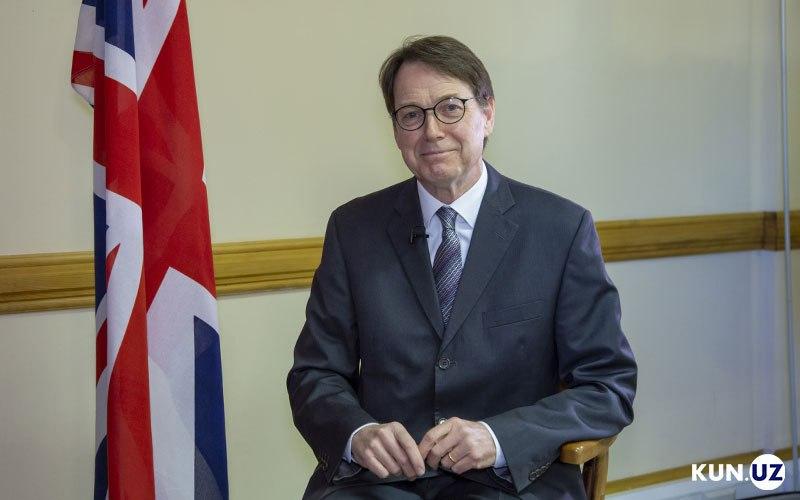
Tim Torlot Photo: KUN.UZ
On October 31, 2019, Uzbekistan’s Foreign Minister Abdulaziz Kamilov and the British Ambassador Tim Torlot signed a Partnership and Cooperation Agreement to preserve the existing legal foundations and develop relations further between Uzbekistan and the UK after Brexit.
To know more about the current state of cooperation, future projects between the parties, development in the sphere of mass media in Uzbekistan and reasons why the UK closed its visa office in Tashkent, we had an interview with the Ambassador Extraordinary and Plenipotentiary of Great Britain Tim Torlot.
As an Ambassador, could you please tell us what are the main objectives and tasks of the British diplomatic mission in Uzbekistan?
Yes. There are lots of things we do. The obvious ones include, for example, we try to make it as easy as we can for Uzbek people to visit the UK, through helping to support the visa process and we look after British nationals here, through our counselor operations.
It is becoming an increasingly important part of this embassy to support the business links, trade and investment links, between the UK and Uzbekistan. That is a real area of growth for us, there is a huge amount of interest in the British business community in the opportunities that are starting to emerge in this country as a result of the reform process here and opening up of the economy. So there is a lot of demand for and interest in what is happening here.
I think the Uzbek authorities here are particularly interested in aspects of what Britain has to offer to Uzbekistan, and therefore making their own contacts with the financial services sector, the healthcare sector, the oil and gas sector, the support for public-private partnerships and privatization. There are a number of different areas. As a government, we are also hugely involved in the education sector here. The British Council is very active with a wide reach to ordinary Uzbeks who want an English education or want to learn to speak British English. So, that is very important.
But I think underpinning all of that is a strong political support for the reform process here and what I do, in general, is working alongside the Uzbek government and other parts of this society to support the really positive things that are happening in the economy, in human rights, in democracy, in political development, in social change, and it gets a really exciting place to be and to be working, and there is a lot that in our small way we can do to help.
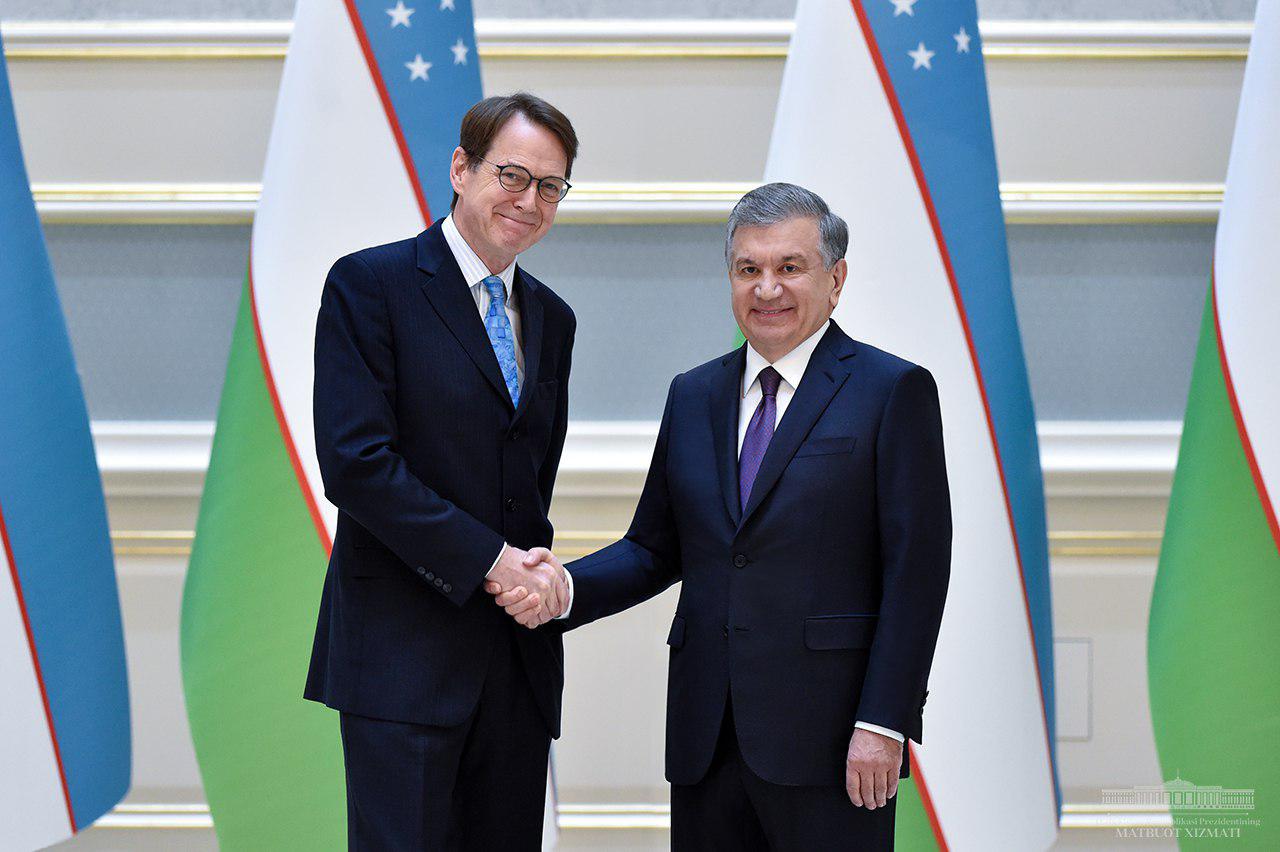
On October 29, Uzbekistan and the UK government signed a Partnership and Cooperation Agreement to preserve the existing legal foundations of bilateral relations and to expand them after Brexit. Do you think Brexit will affect trade turnover and other business deals between the countries?
I’m sure it will. It's a time of great opportunity for the UK. I think Britain has always been a global player. Britain has developed as an economy as a strong, robust, multicultural society because of its links with the outside world. We are a small island and we couldn't have survived if we hadn't had strong trading links and cultural links with countries all over the world.
So I don't think it's a major change in focus but leaving the European Union will make Britain focus further than our European horizons. We’re still good partners of the European countries and we will continue to work closely with them. But it is a new opportunity for us to develop strong links with countries like Uzbekistan where there are tremendous opportunities, and conversely, what will change, we hope, as a result of leaving the European Union, is that we can forge our own bilateral trade deals, political agreements with countries like Uzbekistan, which will allow a much more focused, much more tailored approach.
So for example, Uzbekistan is currently negotiating an Enhanced Partnership and Cooperation Agreement with the European Union. One of Uzbekistan’s objectives for that is stronger access for its agricultural products to the European Union. That might well be a demand that you place on us as well. When you come to negotiate the new Enhanced Partnership Agreement with the United Kingdom, and our approach might well be a different approach from the European Union’s. I can't speak for the European Union but I can say that we, as a country, are very receptive to opening up our boundaries to free fair competitive trade.
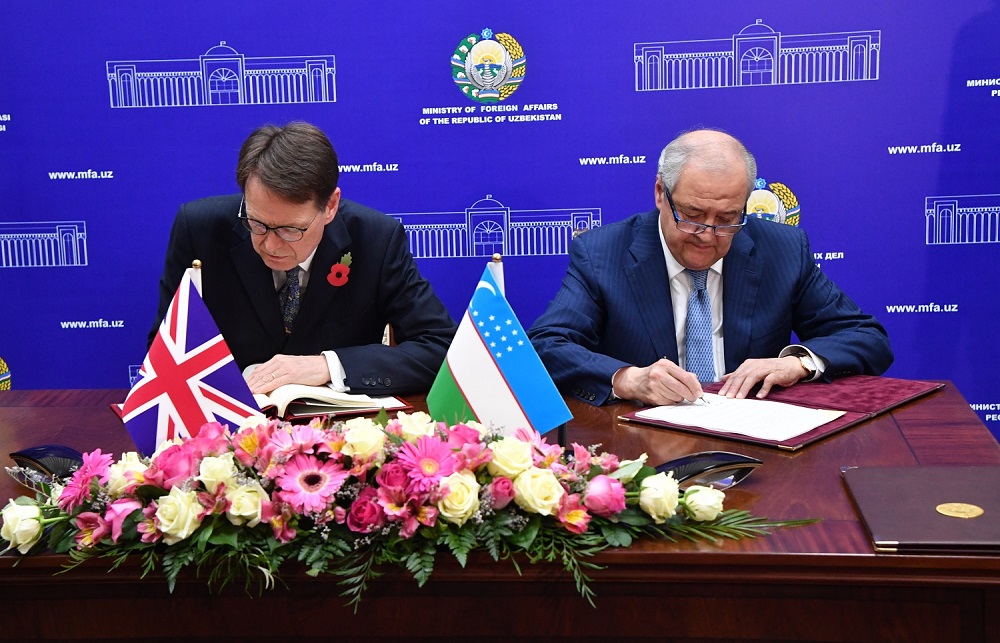
How would you assess media freedom in Uzbekistan? And can you compare the Uzbek media with the UK media, for example with the BBC?
I’m not sure if it’s fair to compare the Uzbek media with the BBC because the BBC is an institution that has been around for a very long time. You’re on the way to having your own BBC but you’re not there yet.
I think there is a tremendous commitment to media freedom. It’s one of the things that when I arrived here people said had changed the most in this country. There’s a much freer debate, growing confidence amongst journalists to be able to tackle more controversial, difficult issues and to criticize the government. I think that it is particularly true of the online media whether it's the bloggers or digital media organizations themselves. That’s a very welcome development.
I see a genuine commitment, not least from the president, to support a free media to support journalists and to support journalist's right to question and criticize if that is done in a responsible, legal way. I think that the institutional support, the legal support for media freedom is really important.
I think also that it needs effective media training, which is part of what the British Embassy helps to do here, to create responsible journalists who check facts, who are engaged in genuine investigative reporting, who know how to do that in a way that leads to constructive, genuine criticism and exposure of criminality or of inappropriate behavior. So I think there’s still a long way to go. I sense that the media feels more confident and wants to be part of that development. I sense that the government is encouraging it. As always, there are people and institutions that are reluctant to see that happen for all sorts of reasons. And I hope very much that the continuing development will help to overcome the doubts.
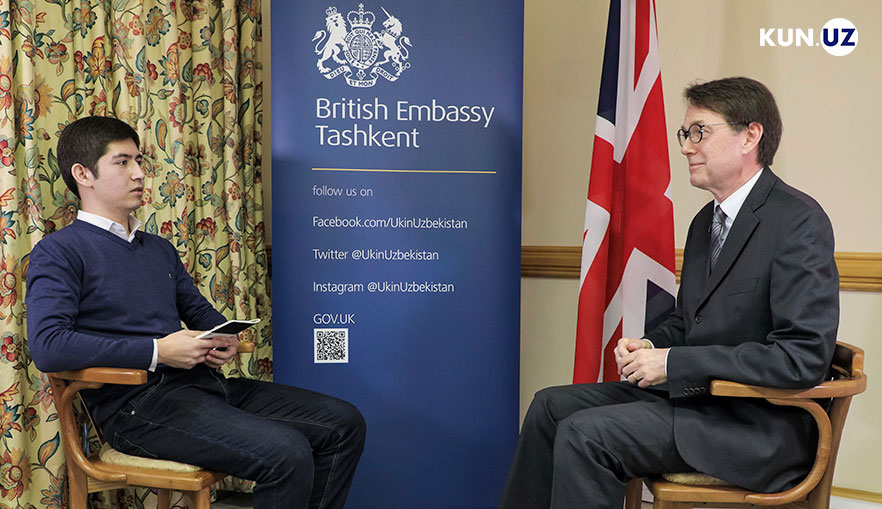
Every year hundreds of Uzbek citizens try to get a UK visa and apply for it. But the UK Visas and Immigration decided to close its office in Tashkent. Could you please comment on this?
I think our visa issuing process is now a much more efficient and effective one, not least because the process is entirely online, so it doesn't need a physical presence in the country for Uzbek nationals or anyone else in the world to be able to apply for a visa. You can do it from the comfort of your own home. So you don't have to travel to Istanbul to apply for a visa but your passport is processed there and the application is processed there and there are good reasons for that: one is that it keeps costs down because we recover the costs of the visa operation through the visa fees. And if you have visa operations all over the world, that is a very expensive process. The scrutiny that is done is carried out by experts, not by people who perhaps do visa work as part of their job and don't understand the law as well as they might.
Actually it's very quick because we have a sizeable staff in Istanbul working solely on visa issues that can respond to different demands from different places quickly. That may seem surprising because I know that the visa process is expensive here and it is time-consuming. And, of course, Uzbek nationals have to wait for a passport to go to Istanbul and to come back. So I encourage people, please, first of all, to make sure that they give plenty of time before they apply for their visas. Secondly, to make sure when they fill in the forms that they do it really accurately, providing all the information that we ask for because, in a number of times when visa applications are rejected, it's because the paperwork hasn't been submitted properly.
I know it’s bureaucratic and time-consuming and I don’t apologize for that because we need that information to make good decisions. But I know it takes time. So please apply on time. Make sure you provide the paperwork and we will do all that we can to provide an effective and efficient service.
Recommended
List of streets and intersections being repaired in Tashkent published
SOCIETY | 19:12 / 16.05.2024
Uzbekistan's flag flies high on Oceania's tallest volcano
SOCIETY | 17:54 / 15.05.2024
New tariffs to be introduced in Tashkent public transport
SOCIETY | 14:55 / 05.05.2023
Onix and Tracker cars withdrawn from sale
BUSINESS | 10:20 / 05.05.2023
Latest news
-
New wind power plant to be built in Tashkent region
SOCIETY | 21:21 / 04.07.2025
-
Shavkat Mirziyoyev holds talks with Shehbaz Sharif, discusses strengthening Uzbekistan-Pakistan strategic partnership
POLITICS | 19:04 / 04.07.2025
-
Senate of Uzbekistan signs cooperation program with UN Population Fund
POLITICS | 19:02 / 04.07.2025
-
Shavkat Mirziyoyev calls for end to violence in Gaza, urges recognition of Palestinian state
POLITICS | 17:31 / 04.07.2025
Related News
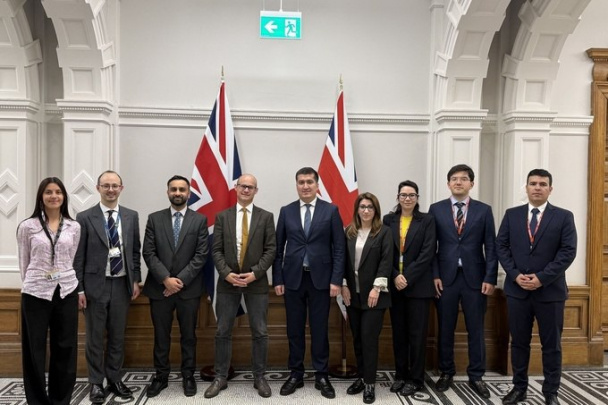
12:51 / 31.05.2025
Uzbekistan finalizes WTO accession talks with the UK
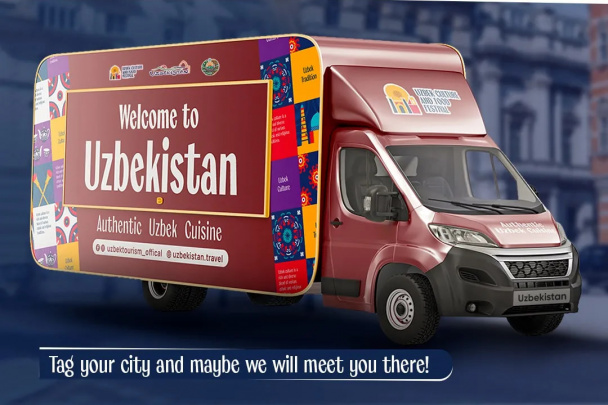
18:10 / 27.05.2025
Culinary diplomacy: “Uzbekistan Caravan” unites cultures across the UK
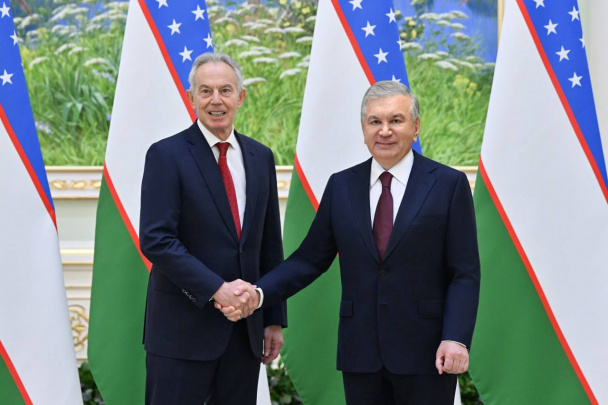
15:35 / 10.04.2025
Shavkat Mirziyoyev meets Tony Blair to discuss economic and technological reforms

15:46 / 11.03.2025



